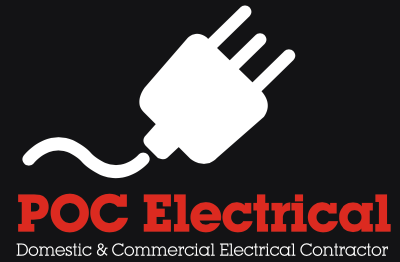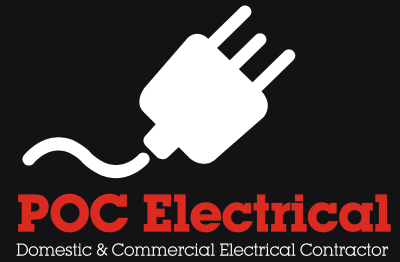Domestic and Commercial Electrical Services Throughout Liverpool and Surrounding Areas
Liverpool Electrical Services include Domestic and Commercail services. We can meet the high demands in EICRs in Liverpool. Please see the small sample lists below for the most popular service

Slide title
Write your caption hereButton
Domestic
Ensure that your home is comfortable, safe and energy-efficient. Contact POC Electrical for:
- Installation of new sockets
- Installation of new lights
- Alarms
- Outside lights
- Outside power
- CCTV
- Alarms
- Fuse board upgrades
- Testing
- Fault finding
- Rewires
- Home automation
- Emergency call outs
- Free estimates
- EICR
- Remedial Works
- Installation of new sockets
- Installation of new lights
- Alarms
- Outside lights
- Outside power
- CCTV
- Alarms
- Fuse board upgrades
- Testing
- Fault finding
- Rewires
- Home automation
- Emergency call outs
- Free estimates

Slide title
Write your caption hereButton
Commercial
Business owners require specialised electrical services. Speak to POC Electrical today for:
- Testing and fault finding
- Installation
- Lamp replacement and Lighting upgrades
- Call outs
- Fire alarm testing
- Emergency light testing
- Maintenance
- EICR
Landlords
POC Electrical works in partnership with landlords throughout Liverpool and the surrounding areas. Talk to our electricians for:
- EICR
- Remedial Works
- Fire alarm testing
- Co2 Detector installation
- PAT Testing
- Emergency light testing
- Call outs
- Appliance replacements

Slide title
Write your caption hereButton
Frequently Asked Questions by Landlords
-
What are the common electrical terms I should know
Whether your whole house is being rewired or you’re just having some new sockets fitted, it helps to know the difference between a consumer unit and a circuit breaker. To help you understand what your electrician is talking about, we’ve put together a list of common industry terms.
BS 7671 - British Standard
Also known as the IEE (Institute of Electrical Engineering) wiring regulations and is the standard that all electrical installations must adhere to.
Building Compliance Certificate
Might also be referred to as a Part P certificate. It is confirmation sent to the householder that the contractor has notified the work to the local authority via their competent person scheme. It is an important document that states the work is compliant to the building regulations and will be needed when the property is due to be sold.
Circuit
An assembly of electrical equipment (socket outlets, lighting points and switches) supplied from the same origin and protected against over current by the same protective device(s).
Circuit Breaker or RCD
A device capable of making, carrying and breaking normal load currents and also making and automatically breaking, under pre-determined conditions, abnormal currents such as short-circuit currents. It is usually required to operate infrequently although some types are suitable for frequent operation.
Class I Equipment
Equipment in which protection against electric shock does not rely on basic insulation only, but which includes means for the connection of exposed-conductive-parts to a protective conductor in the fixed wiring of the installation. Class I equipment has exposed metallic parts, e.g. the metallic enclosure of washing machine.
Class II Equipment
Class II equipment, such as music systems, television and video players, in which protection against electric shock does not rely on basic insulation only, but in which additional safety precautions such as supplementary insulation are provided, there being no provision for the connection of exposed metalwork of the equipment to a protective conductor, and no reliance upon precautions to be taken in the fixed wiring of the installation.
Class III Equipment
Class III equipment, for example for medical use, in which protection against electric shock relies on supply at SELV (Safety extra low voltage) and in which voltages higher than those of SELV are not generated. Class III equipment must be supplied from a safety isolating transformer.
Consumer Unit
Also known as a fusebox, consumer control unit or electricity control unit. A particular type of distribution board comprising a co-ordinated assembly for the control and distribution of electrical energy, principally in domestic premises, incorporating manual means of double-pole isolation on the incoming circuit(s) and an assembly of one or more fuses, circuit-breakers, residual current operated devices or signalling and other devices purposely manufactured for such use.
Distribution Board
An assembly containing switching or protective devices (e.g. fuses, circuit-breakers, residual current operated devices) associated with one or more outgoing circuits fed from one or more incoming circuits, together with terminals for the neutral and protective circuit conductors. It may also include signalling and other control devices. Means of isolation may be included in the board or may be provided separately.
Electrical Installation Certificate
Any electrician installing a new electrical installation (including a single circuit), altering, extending or adapting an existing circuit should issue the homeowner with electrical installation certificate or minor electrical installation works certificate to confirm the work complies with the requirements of BS 7671.
Electrical Installation Condition Report (EICR)
Formerly called a Periodic Inspection Report (or PIR). A report to establish the overall condition of all the electrics in a building, stating whether it is satisfactory for continued use and detailing any work that might need to be done.
Electrical Installation
Any assembly of electrical equipment supplied by a common source to fulfil a specific purpose.
Extension Leads
An extension cable, also known as a power extender, extension cord or an extension lead, is a length of flexible electrical power cable or flex with a plug on one end and one or more sockets on the other end - usually of the same type as the plug. However use of extension leads should be avoided where possible, as there is a chance of overloading the circuit.
Extra Low Voltage (ELV)
Normally not exceeding 50 V a.c. or 120 V ripple-free d.c. whether between conductors or to earth.
mA
Milliamp or 1/1000 part of an amp - a unit of electric current.
Overcurrent
Electrical current (in amps) that exceeds the maximum limit of a circuit. May result in risk of fire or shock from insulation damaged from heat generated by overcurrent condition.
Part P
The specific section of the Building Regulations that provides minimum safety standards for domestic electrical installations. The Building Regulations are a devolved power so the actual requirements may vary across the UK dependent on which country the work is being done in.
Portable Appliance Testing (PAT)
Inspection and testing of electrical equipment including portable appliances, moveable equipment, hand held appliances, stationary equipment, fixed equipment/appliances, IT equipment and extension leads.
Periodic Inspection Report (PIR)
An electrical survey to reveal if electrical circuits are overloaded, find potential hazards in the installation, highlight any lack of earthing or bonding and carry out tests on the fixed wiring of the installation. The report is known as an Electrical Installation Condition Report (EICR) and will establish the overall condition of all the electrics, state whether it is satisfactory for continued use and detail any work that might need to be done.
Platinum Promise
Put simply, our Platinum Promise is a guarantee. If an NICEIC & ELECSA registered contractor carries out work that falls within their scope of certification but turns out to be non-compliant – and they then stop trading – then we will step in.
At no extra cost to you, we will employ another contractor to rectify the non-compliant work. Subject to the Platinum Promise Conditions & Exclusions
Portable equipment
Electrical equipment which is less than 18 kg in mass and is intended to be moved while in operation or which can easily be moved from one place to another, such as a toaster, food mixer, vacuum cleaner, fan heater.
Prospective fault current
The value of overcurrent at a given point in a circuit resulting from a fault between live conductors.
RCD - Residual Current Device
Residual current device is a safety device that switches off the electricity automatically when it detects an earth fault, providing protection against electric shock.
Ring final circuit/ring main
A final circuit connected in the form of a ring and connected to a single point of supply.
SELV
Separated Extra-Low Voltage. An extra-low voltage system, which is electrically separated from Earth and from other systems in such a way that a single fault cannot give rise to the risk of electric shock.
-
When should I use an electrician ?
If you are considering DIY work in the home or about to undertake significant home improvements, you need to make sure that the electrics are installed to a high standard.
Some electrical work in the home is subject to Part P of the Building Regulations and the easiest way to ensure that your installation complies with the regulations is to use a contractor registered to a competent persons scheme like us at POC Electrical
If you are a Landlord or manage commercial properties, you will have additional legal responsibilities to ensure that you use a suitable person to undertake work and that your electrical installations are checked on a regular basis.
-
What is a EICR or Electrical Installation Condition Report
A EICR is a report which is carried out on an electrical installation to assess the condition of the fixed wiring and accessories. The aim is to make sure the installation meets BS7671 Regulations and is safe for continued use and highlight to the person ordering the work any potential issues that may need attention to keep the installation compliant until the next inspection.
You cannot see electricity. Cables are usually hidden inside our walls, and consumer units are often hidden in cupboards, so it is not surprising that we forget to check the condition of our electrical installation for damage or wear and tear.
Faulty and old wiring is one of the main causes or electrical fires in the home. You can reduce the risk of a fire by checking the condition of your cables, switches, sockets and other accessories regularly.
-
As a Landlord do I need a EICR ?
YES - In england the The Electrical Safety Standards in the Private Rented Sector (England) Regulations 2020 states that all private rentals are required to have a satisfactory EICR completed on all properties.
The advice can be found on the goverment website via the link below
-
As a home owner do I need a EICR
It is only my opioion but I have not found anything that requires you to have one on your own property which you inhabit, but we strongly recommed that you have one carried out peridically. Just because you live in the property does not mean that the installation will act any diffrent to rental property. Installation break down over time and can become dangerous.
-
Is a re-wire messy
YES - A full re wire involves the walls being cut with a machine and this does cause dust. We have tools which capture the vast majority and we cover all belongings while works are being carried out but in genral there is a lot of disruption.
- Mon - Fri
- -
- Sat - Sun
- Closed
24 hour emergency service
Lovelace Road,
Liverpool, L19 1QE





